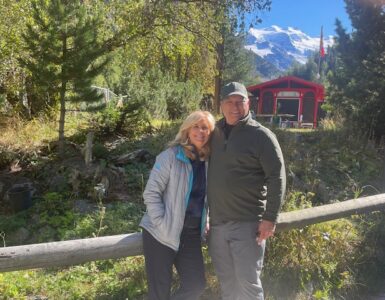If your child is a perfectionist, you can help them change their assessment style from negative to positive.
Perfectionist. We throw that label around a lot. Maybe you are one, or maybe you’re raising one. Often, children with perfectionistic tendencies – kids with high levels of shame or guilt – have what’s called a negative assessment style, which often results in low self-esteem.
Psychologist Dr. Tom Golightly says parents can help turn that around. He shares five ways parents can encourage a positive self-assessment style.
How to Help When Your Child is a Perfectionist
Connect the bridge between expectations and self-judgment
We often make assumptions that life has to go a certain way, or one “right” way and this is the way it should be. When it doesn’t turn out the way we expected, we often blame ourselves and bring discouragement and feelings of failure. Encouraging our young adults to not need a certain outcome from something – reduce the need to expect or demand certain outcomes from life events will be a huge benefit to them. Help them to let go of trying to predict what will happen – we are very bad at predicting the future, (like in the 90% wrong category), let’s get away from that habit. Whether they are successful, or disappointing outcomes, expectation doesn’t help – our kids tend to either reduce the impact of the success (I was supposed to do well) or we punish, (It’s my fault it didn’t go the way it was supposed to).
Curiosity as an antidote for expectation
The best type of engagement in any life activity or event is mindful focus. Curiosity helps us stay present, and enjoy the wonder of things around. It is not only a potential antidote for perfectionism, it is also a great counter for blame, bias, burnout, anxiety, and fear. Work to encourage our adult children to just be curious about events. We often have no idea how things will go, so let’s just show up and bring what we got that day. Doing so, we free ourselves up to be more mindfully and process-oriented in how we engage our activities through curiosity. Modeling actively listening and follow up questions in our interactions – show them how to be curious. When things might be different than expected – ask questions about it. These questions lead to traits associated with resilience – openness to experience and psychological flexibility. Someone I worked with recently was very angry and upset in a test and then shifted to start asking, “Why would my professor want to ask us about this?” which changed the attitude and approach, leading to a much more successful test experience and outcome.
Encourage progression not perfection
We can encourage our young adult children to shift their assessment away from perfection and substitute that with progression. We very regularly want things to go perfectly, and I can’t remember the thing in life that went exactly as I wanted it to. There are two problems with focusing on perfection as an outcome: 1. it pulls us away from focusing on the process (and the awesome things that lie therein) and 2. only allows for things to be awesome or terrible. Life events are much more palatable when we enjoy the journey, and our acceptance of the winding path actually leads to more preferred outcomes. I enjoy the successes that take a tone of work more than those that happen by chance. Too often we assess ourselves in the extremes. If we need things to go perfectly, then there are only two possible outcomes – good or terrible. This is not really how our lives go. There are good parts and bad parts to every circumstance.
Observations, not Judgments
We really want to encourage our young adult children to make observations about things that have happened, instead of judging themselves for it. We all feel compelled to review and replay events after they happen, and it is a really good idea to try and learn from failures and mistakes. However, the mistake we all often make is that we place an emotional judgment or conclusion about the events, which brings down our self-belief/worth. Recently, right after a game at BYU, I was walking with a group of athletes who were trying to re-hash what had happened moments before. I heard them evaluating themselves pretty harshly. I tried to gently encourage them to wait at least a night, and until the film comes out where they can review it objectively, and remove themselves from the emotion of the moment in order to evaluate it. When we do that we get a much more accurate picture of what transpired. Acting like a coach or an advisor in some ways. When we take the emotion-filled judgment out of the equation, we often see things weren’t nearly as one-sided, terrible, or entirely our fault – conclusions we would make in the emotional moments following. There are always good things and things we want to do differently about life events. Let’s encourage emerging adults to be more nuanced than it was perfect or terrible. Finishing the story – a few days later, every one of those athletes found me, thanked me, and said how much more they learned and how confident they felt about making helpful changes not having gone down that emotional rabbit hole right after the performance.
Encourage Compassion
Compassion is key to healthy self-assessment. If there is one thing we can start doing today as parents, it is to encourage our adult children to be kinder to themselves. Emerging adults are really struggling with this right now. It is strange that we tend to give that kindness to others freely, but often struggle giving it to ourselves. I often ask my students and clients, “Would you be friends with another person if they talked to you they way you talk to yourself?” Almost uniformly the answer is no. But this question often encourages them to start giving them space to make mistakes, be kind, and embrace their progression. It also frees up space to be more accepting what we do well – learning how to be okay rewarding ourselves for the things that go right in our lives. While our emerging adults of (is more than being kind, it’s also knowing know what you do well)















Add comment